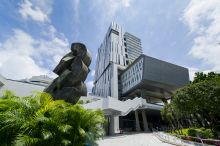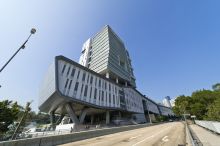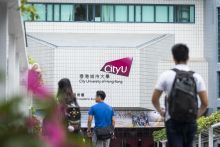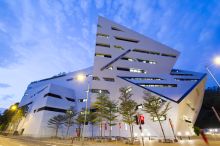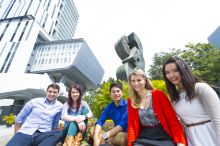The Master of Arts in Creative Media (MACM) programme consists of 30 credit units, which include 12 credit units of core courses and 18 credit units of elective courses.
MACM is structured around three streams, Technofutures: Theory and Culture Stream, Influencer Studies Stream and Expanded Curation Stream. MACM students will join one of the three streams:
1. Technofutures: Theory and Culture Stream
The Technofutures stream cultivates critical thinking and analytical abilities, preparing students for leadership roles in the rapidly evolving creative industries. By grounding students in aesthetics, philosophy of technology, media theory, cultural studies, and art theory, we equip them to understand and shape the complex interplay of technology, culture, and society.
Core courses delve into the critical implications of emerging technologies such as the metaverse, AI, and blockchain while exploring contemporary media and cultural dynamics. Students will also examine the philosophical foundations of technology and investigate how creative practices are being transformed by complex systems. Through analyzing the intricate connections between technology, culture, and society, students will gain a deep understanding of key contemporary phenomena, including media platforms, collective intelligence, digital creativity, influencer networks, creative entrepreneurship, participatory culture, AI, media activism, global media conglomerates, digital labor, big data analytics, and cultural analytics.
The Technofutures stream offers a global perspective on the platform-centric media landscape, equipping students with the knowledge and skills necessary to thrive in the dynamic and ever-changing world of creative industries. Graduates will be well-prepared to pursue careers in areas such as media analysis, specialised journalism in art and tech, cultural strategy, technology consulting, media activism, and creative entrepreneurship.
2. Influencer Studies Stream
The influencer studies stream offers a critical and interdisciplinary exploration of contemporary influencer practices and the platformization of culture on leading social media platforms (YouTube, Instagram, Twitch, WeChat, TikTok, Xiaohongshu and Bilibili). This stream extends beyond marketing and branding strategies, delving into the broader cultural and economic implications of social media influencing.
By emphasizing philosophy, aesthetics, and critical thinking criticality in the spirit of humanities, the influencer studies stream prepares students for future careers in social media and creative industries. This unique approach leverages the expertise of a contemporary media art school to experiment with alternative artist pedagogy and interrogate the pervasive notion of "content" through various aesthetic forms and formats, from filmmaking, photography, performance art, design, and creative writing to sound recording.
The core curriculum will survey global and regional (Sinosphere) social media cultures, focusing on platform-specific and mobile-centric knowledge. This comprehensive approach equips students with a deep understanding of emerging trends, cultural nuances, and the complexities of influencer/creator culture, including data, algorithms, virality, precarity, fame, affect, labor, gender, and intersectionality.
3. Expanded Curation Stream
The Expanded Curation stream equips students with the skills to navigate the evolving landscape of content creation and curation, making them valuable assets to both creative industries and art institutions. Building on the school's unique position as a regional pioneer in immersive, interactive, telepresent, mobile, and distributed presentation technologies, this stream champions expanded curation as a modern media practice.
Contemporary curators are increasingly becoming content creators who select, organize, and moderate cultural and creative content across various platforms, including social media, the metaverse, and personal or collective archives. Beyond traditional taste-making or opinion-leading, specialists in expanded curation leverage their knowledge of contemporary social media, technocultural trends, and medium-specific digital methods.
By studying iconic exhibitions that break free from traditional museum structures, students gain a theoretical and practical context for emerging presentational forms such as Transactional Curation (selecting and presenting tokenized artworks), Streaming Curation (designing compelling streams and feeds), and Distributed Curation (virtual and physical sites, shared and interactive selection models).
Graduates of the Expanded Curation stream will be well-prepared to pursue careers in areas such as: Content curation and management for social media platforms, museums, galleries, and cultural institutions; Digital content creation for brands, agencies, and media companies; NFT curation and consulting; Immersive experience design for museums, galleries, and events; Media strategy and planning for organizations in the creative industries
